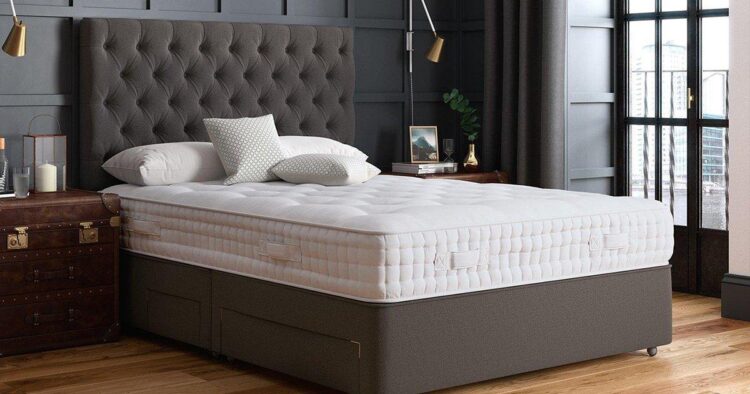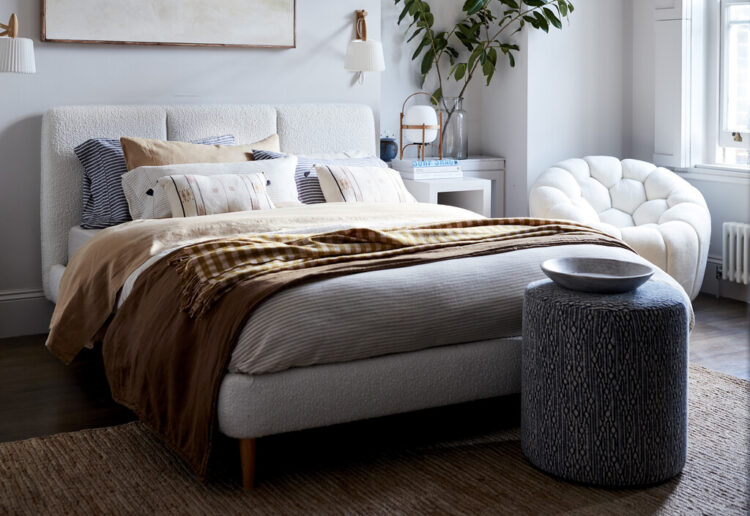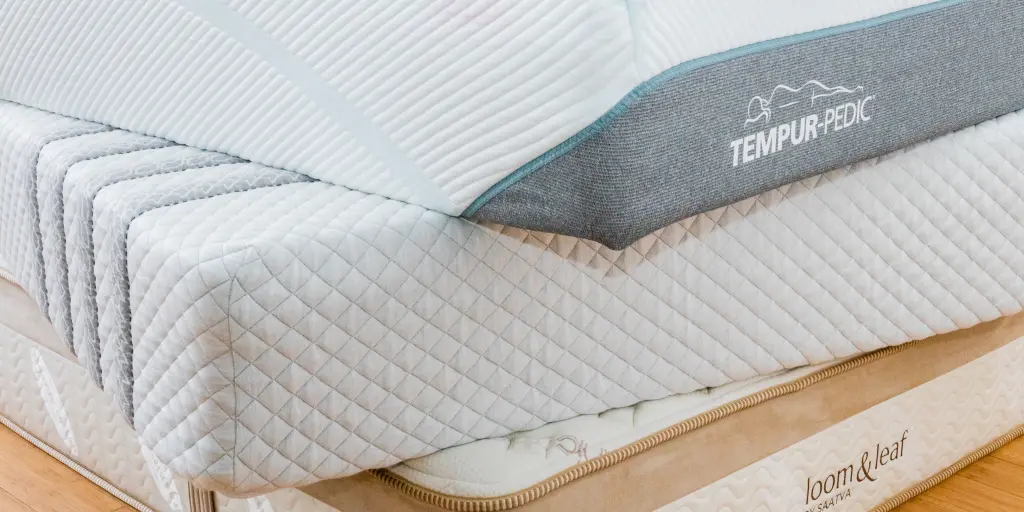Let’s be real – shopping for a mattress doesn’t have the same excitement as picking a new phone or car. You buy it once and don’t think about it until it’s clearly past its prime, often marked by those uncomfortable craters that seem designed for astronauts rather than sleepy humans. But here’s the thing: the quality of your mattress can significantly impact your physical and mental health. It can either promote restful sleep or lead to restless nights, body aches, and even allergies.
You see, your old mattress might be contributing to poor sleep, aches, or allergies. It could be due to those pain-inducing sags that naturally form after years of use, a spine that’s out of alignment because your mattress has softened over time, or even a hidden population of dust mites making you sneeze. Old mattresses can get pretty gross, not to mention uncomfortable.
So, whether you’re replacing a mattress older than your 9-year-old or buying your first one, you’re likely wondering what to look for when mattress shopping. We’ve got you covered. Below is a simple guide on how to choose a mattress that’ll cater to your needs and ensure better sleep.
Table of Contents
What You Should Know Before You Shop

Source: dreams.co.uk
1. Types of Mattresses
Memory Foam: Memory foam mattresses are like a hug for your body. They conform to your shape, relieving pressure points and cradling you in comfort. Ideal for side sleepers or those with back pain, they promote proper spine alignment. However, they can retain heat, although many brands now offer cooling features.
Latex: Latex mattresses feel somewhat like memory foam but with more bounce. They’re firmer and more resilient, making them a great choice for eco-conscious shoppers as they can be made from natural materials. There are two types: Dunlop, denser and firmer, and Talalay, softer. However, the difference between them may not be easily noticeable. If you’re looking for the best latex mattress in India, Flo’s natural latex mattress with Flo Responsive™ foam might be your answer.
Hybrid: Hybrid mattresses combine the best of both worlds, with memory foam or latex on top and coils below for support. Many feel similar to foam beds but are heavier and more expensive. Great for those wanting a mix of comfort and support. They are durable and long-lasting, making them a good investment for long-term use. They tend to be a great solution for multiple sleepers because they can support a wide range of sleeping patterns and body shapes.
2. Consider Your Budget
A mattress is an investment in your well-being, and you usually get what you pay for. While there’s a comfy mattress for almost every budget, you can broadly categorize them into:
- Budget (around ₹20,000 and below)
- Average (around ₹40,000 to ₹60,000)
- Affordable luxury (around ₹65,000 to ₹80,000)
- Luxury (around ₹100,000 and up)
3. Identify Your Sleeping Position

Source: media.dfs.co.uk
Think about how you sleep most often. Your sleeping position can help determine the firmness of your mattress:
Side Sleepers: Go for a soft to medium-firm mattress. It cushions your hips and shoulders without pressuring your joints.
Back and Stomach Sleepers: Opt for medium to firm mattresses. They provide the support your spine needs.
Combination Sleepers: If you switch positions, choose a medium-firm mattress. They accommodate various sleep styles.
4. Take Your Body Type into Consideration
Your weight or BMI matters when choosing a mattress. Heavier individuals exert more pressure on a mattress, so a medium-firm one might feel softer for them. If you weigh over 250 pounds, consider at least a medium-firm mattress.
5. In-Store or Online?

Source: nytimes.com
Decide how you want to shop.
In-Store: You can try mattresses before buying and potentially haggle for a better price.
Online: Convenience is key. Mattresses are delivered directly to your door, often with perks like free shipping, returns, trials, and warranties.
Additional Tips
1. Check for Spinal Support and Pressure Relief: Spend time on your potential mattress in different sleeping positions. Make sure it keeps your spine aligned and relieves pressure on your shoulders, hips, and knees.
2. Evaluate Edge Support: If you like to sleep on the edge of your bed, make sure the mattress has good edge support so you don’t feel like you’re going to fall off. This is especially important if you’re a heavy sleeper or share a bed with a partner.
3. Shop with Your Partner: Consider both your comfort levels and check if the mattress isolates motion well. Consider your different sleeping positions and preferences. A good mattress should accommodate both of you so you can both get a good night’s sleep.
4. Understand the Trial Period: Know the trial period for returns and exchanges. It varies based on where you buy. It is a great way to try out a mattress before you commit to buying it.
5. Note the Warranty: Good mattresses have warranties ranging from 10 to 25 years. Ensure you understand what’s covered. It will give you peace of mind knowing that your investment is protected.
6. Inspect the Mattress on Delivery: Look for stains or damage. Ensure labels indicate it’s made from new materials. If it’s a mattress-in-a-box, check it as soon as you unroll it.
Conclusion:
In conclusion, sleep plays a pivotal role in our mental and physical well-being, facilitating memory consolidation and bodily healing. The absence of adequate sleep can lead to a range of adverse effects, such as fatigue, irritability, impaired concentration, and slower thinking.
Investing in a good mattress can significantly contribute to ensuring we receive the rest we need. A high-quality mattress can alleviate pressure points, maintain proper spinal alignment, reduce discomfort and pain, and enhance our ability to fall asleep and stay asleep. I
f you’re struggling with sleep issues, it may be time to consider buying a new mattress. With a variety of options available, it’s essential to conduct some research and select the one that best suits your needs, taking into account factors like your sleeping position, body type, and budget.
Remember, the right mattress can be a game-changer for your sleep quality and overall health. Happy mattress hunting!

